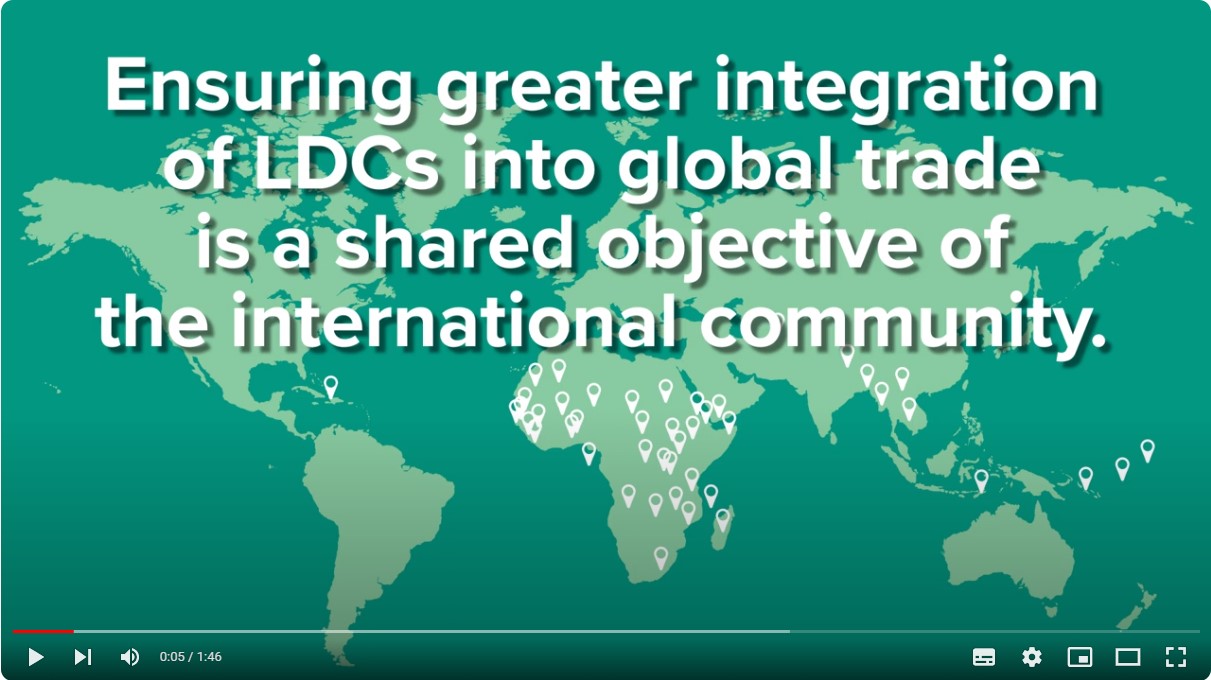LEAST-DEVELOPED COUNTRIES (LDCS)
More
Among the initiatives to support the transition, LDCs cited enhancing fisheries value chains in Angola, boosting agriculture development in Nepal and making the garment industry in Cambodia more environmentally sustainable and resilient. Strengthening logistics is at the heart of these efforts, LDCs stressed. Important projects include operationalizing the Lobito Railway Corridor in Angola and enhancing the road infrastructure connecting Kathmandu, Nepal, to Kolkata port in India. Participants also pointed to efforts aimed at building strong governmental institutions and ensuring macroeconomic stability.
Graduated LDCs noted that their trade capacities continue to be severely impacted by extreme weather conditions, such as cyclones, droughts and earthquakes. They underlined the importance of creating an environment to help mitigate these effects and of enhancing coordination among donors.
Development partners shared their measures aimed at supporting LDCs before and after graduation, such as duty-free and quota-free programmes and targeted technical assistance activities. Over the past five years, 70 per cent of aid for trade provided by the United States Agency for International Development (USAID) benefitted low-income countries. Details by beneficiary is available here. Australia recently announced a new AUD 20 million Aid-for-Trade package to support e-commerce and the digital economy, trade finance, intellectual property and national trade-related strategies on climate mitigation and adaptation.
Decisions on LDC graduation are taken by the United Nations upon recommendation from the UN Committee for Development Policy, an advisory body to the UN Economic and Social Council. The decisions are based on certain socio-economic thresholds.
In the regular session of the Sub-Committee on LDCs, WTO members examined LDCs' trade trends and the main findings of the United Nations Conference on Trade and Development's 2023 Least-Developed Countries Report. While LDCs' share in world exports of goods and commercial services increased from 0.95 per cent in 2021 to 1.02 per cent in 2022, further efforts are needed to enhance these countries' export capacity so that they may benefit from new trade opportunities.
Information about the experience-sharing session is available here.
The 2024 Ministerial Decision on LDC graduation can be accessed here.
There are currently 45 LDCs, of which 15 are on the path to graduation. Eleven are WTO members: Bangladesh, Cambodia, Djibouti, Lao PDR, Myanmar, Nepal, Rwanda, Senegal, Solomon Islands, Tanzania and Uganda . Two are in the process of WTO accession: Comoros and Sao Tome and Principe. The other two are Kiribati and Tuvalu.
More information on the Sub-Committee on LDCs can be found here.
Share
Share
Problems viewing this page? If so, please contact [email protected] giving details of the operating system and web browser you are using.
